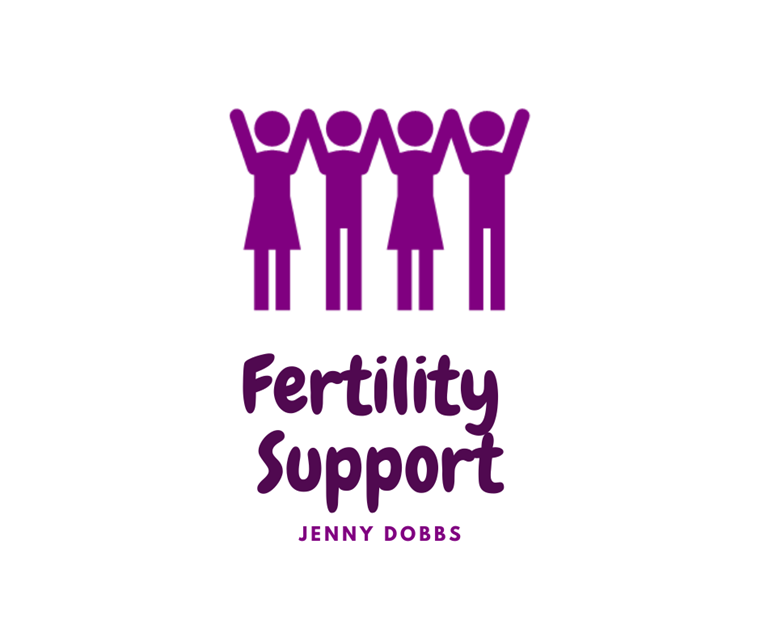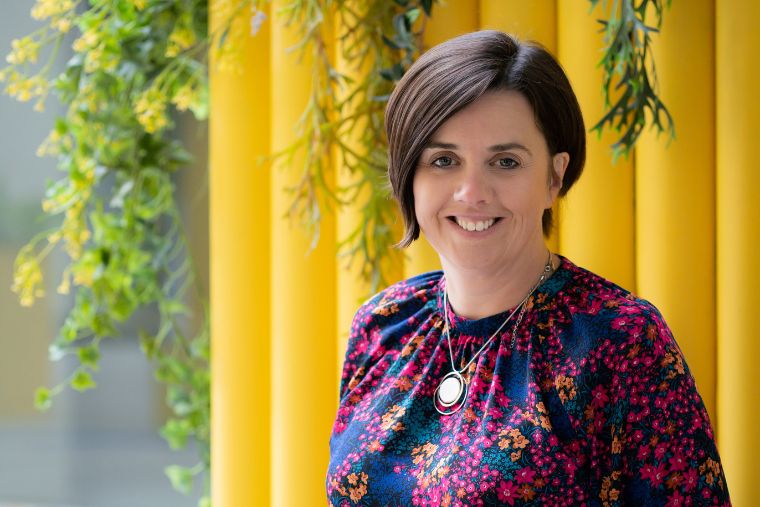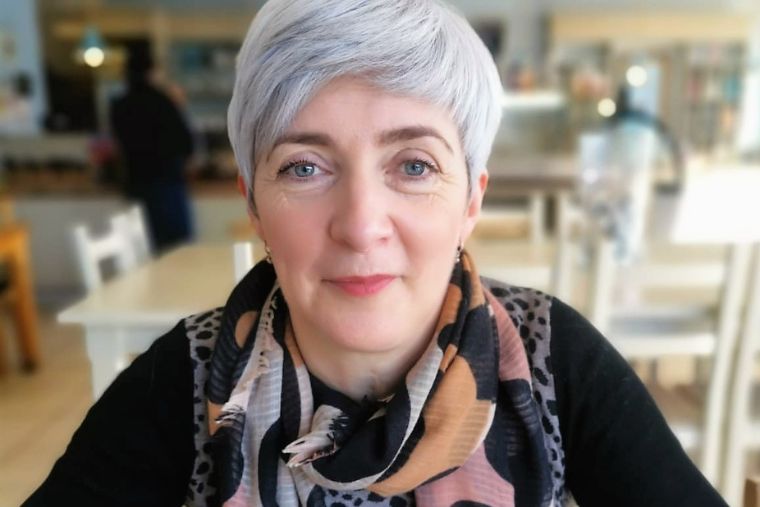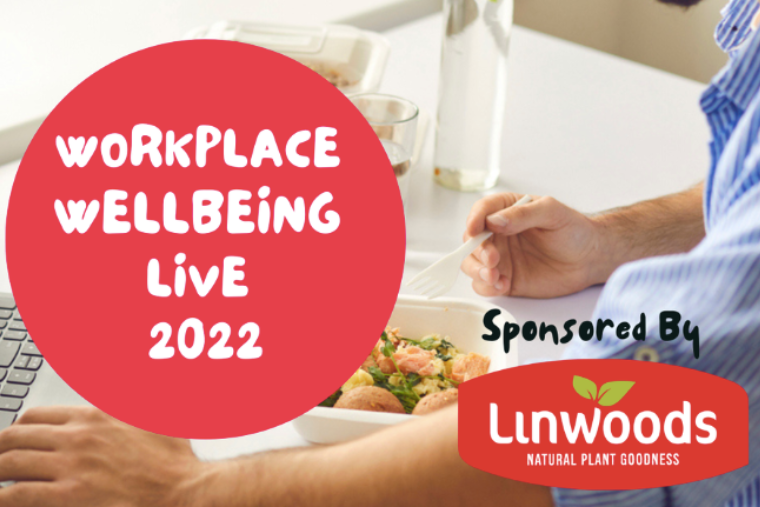Jenny Dobbs Fertility Support
The world of fertility can be overwhelming and endless medical information can be mind boggling at the best of times. For those who have been planning or are already trying to build a family with the help of fertility treatment, life can feel even more uncertain after receiving the news that fertility treatment has been temporarily put on hold whilst the world tries to get a grip on the virus.
Wednesday 1 April 2020

The world is full of uncertainty at the moment, with millions of people worldwide affected by the implications of the Coronavirus pandemic. The world of fertility can be overwhelming and endless medical information can be mind boggling at the best of times. For those who have been planning or are already trying to build a family with the help of fertility treatment, life can feel even more uncertain after receiving the news that fertility treatment has been temporarily put on hold whilst the world tries to get a grip on the virus. This uncertainty can be extremely distressing.
Unfortunately, this situation is beyond our control as we we must follow the advice and guidance of the experts and hope that the situation will return to normal as soon as possible, as this is an evolving situation and information is changing all the time. This in no way diminishes your desire to have a baby but due to the uncertainty it may be necessary to put your plans on hold indefinitely until the situation is more stable. All health care professionals, including those in fertility clinics must follow professional advice and protect the safety of their staff and patients.
Many people have gone through tremendous physical and emotional challenges by the time they are doing an IVF cycle. In addition, the financial implications and future employment uncertainties can make the whole situation seem like a nightmare. It is important to get accurate and current information to help reduce anxiety. It is also important to look after your physical and mental health during this time. Primarily you must follow all government advice to protect yourself and your family from the virus.
The professional recommendation is that fertility clinics in the UK and Ireland work to cease treatments. The guidance will be reviewed as the situation progresses, with reference to national advice and new evidence as it emerges. Clinics will be working with the professional bodies to consider how and when best to resume normal activities as quickly and as safely as possible.
It is reassuring that there is good evidence that delaying treatment for a few months will not ultimately affect your ability to have a child, even if you have concerns about advanced age and/or low egg supply. In fact, in some cases it is beneficial to delay embryo transfer for a few months following egg collection, especially if there is a risk of OHSS.
We are all living through unprecedented times and we all must adapt to the new and unusual situation. It is very important not to become obsessed with the negatives or constantly worry about something that you cannot control. You can try to use this time to focus on your physical and mental health and wellbeing so that when your time comes you are feeling positive and healthy to give your self the best possible chance of having a baby. You can also use this time to consider the different options available to you when the time is right to start treatment
The purpose of this article is to provide independent reliable information and support for anyone who has a concern about their fertility, regardless if you are in the midst of a cancelled treatment cycle, have concerns about your future fertility or would simply like to improve your fertility health and wellbeing.
There are things you can do to help deal with the situation and reduce the stress.
It is also important to seek professional help when you need it.
· If you are already undergoing treatment or have gametes or embryos in storage, your clinic may be able to provide you with access to a trained mental health provider / counsellor who can advise you on how to manage the stress and emotions surrounding this extremely difficult time. Many of these providers are prepared to offer telehealth options.
· Ensure that you get accurate and current information to reduce anxiety. Utilise reliable sources, your clinic or healthcare provider, HFEA or recognised support groups (see links below)
· Limit your use of social media and other sources of news.
Set a certain time of day for gathering news. Try to choose a time when you are least likely to be triggered
· Stop using technology devices an hour or more before bedtime…turn them off. Leave them outside the bedroom.
· Utilize relaxation or mindfulness apps to reduce anxiety and tension and improve sleep. Focus on the present moment. Some examples of these apps are Headspace and Mindful IVF
· Distract yourself with non-COVID-19 related topics. Taking even an hour per day to focus on other things, like reading or exercise will help.
· Pay attention to the messages you give yourself. Positive self-talk can be powerful. Saying things like, “This isn’t the situation I expected to be in, but it doesn’t mean it won’t work out eventually,” can be helpful.
· Stay in touch with others in your support network. Use virtual connection via telephone or video chat to do this. Staying connected with others reduces the sense of isolation.
· Remember that you are not alone and if you can, try to share your concerns and worries. Someone else’s perspective may help you to deal with them.
For patients undergoing Fertility treatment
Your clinic will guide and support you and will have a plan for getting back to normal as soon as possible. The British Fertility Society (BFS), American Society for Reproductive Medicine (ASRM) and European Society of Human Reproduction and Embryology (ESHRE) have all stated that, in view of the unknown effects of Covid-19 on embryos and pregnancy, and in the midst of a public health emergency, no new fertility treatment cycles should be started at the moment. This decision will be reviewed frequently as new data emerge and the pandemic progresses with the aim of getting back to normal.
The current advice is that if you have already started in a fresh IVF cycle, all embryos are frozen rather than transferred fresh. Once the situation has settled then a Frozen Embryo Transfer cycle can be arranged. There should not be any extra cost for storage of embryos during this period.
Reassuringly, a number of recent studies show that the chance of having a baby is the same (or potentially even higher) with a freeze-all compared to fresh embryo transfer approach. There is also a significantly lower risk of developing the IVF complication of Ovarian Hyper stimulation Syndrome (OHSS) in freeze-all cycles.
For Patients with gametes or Embryos in storage
There is no threat to the safety of cryopreserved eggs, sperm or embryos. Clinics have policies and procedures to maintain the storage tanks containing frozen material.
The psychological impact of infertility
The long-term inability to conceive a child can evoke feelings of stress and anxiety. There is also the added concern of the financial cost of fertility treatment. It is perfectly natural to have emotional ups and downs as you cope with infertility and make the decision to seek help with fertility treatment. Feeling overwhelmed at times is a perfectly normal response. There are certain points during infertility treatment when discussion with a fertility coach can be very helpful. If you are considering various treatment options, understanding the procedures and exploring your feelings about these options is important. It can help facilitate clarification of your thinking and help with your decision making. It may be particularly helpful to you and your partner if:
· You have different ideas about the best way forward
· Struggle with lifestyle changes
· Are deciding between alternative treatment possibilities
· Exploring other family building options
· Considering third party assistance (gamete donation, surrogacy)
· Having difficulty communicating or feel that the fertility journey is taking over your life / relationship
However, if you experience any of the following symptoms over a prolonged period of time, you may benefit from a consultation with a mental health professional:
· loss of interest in usual activities
· depression that doesn't lift
· strained interpersonal relationships (with partner, family, friends and/or colleagues)
· difficulty thinking of anything other than your infertility
· high levels of anxiety
· diminished ability to accomplish tasks
· difficulty with concentration
· change in your sleep patterns (difficulty falling asleep or staying asleep, early morning awakening, sleeping more than usual for you)
· change in your appetite or weight (increase or decrease)
· increased use of drugs or alcohol
· thoughts about death or suicide
· social isolation or feelings of extreme loneliness
· persistent feelings of pessimism, guilt, or worthlessness
· persistent feelings of bitterness or anger
You can contact Jenny via email: jennyadobbs@yahoo.co.uk
Useful links
· For Professional guidance - https://www.hfea.gov.uk
· Human Fertility & Embryology Authority - https://www.britishfertilitysociety.org.uk/
Support Networks
· The national charity for anyone with fertility problems - https://fertilitynetworkuk.org/
· Confidential support Line - https://www.supportline.org.uk/
Jenny Dobbs Fertility Support.
Wednesday 1 April 2020



 Contact us
Contact us
 Share on social
Share on social Share with a friend
Share with a friend Facebook
Facebook LinkedIn
LinkedIn
 Twitter
Twitter




















 Get in touch with us
Get in touch with us